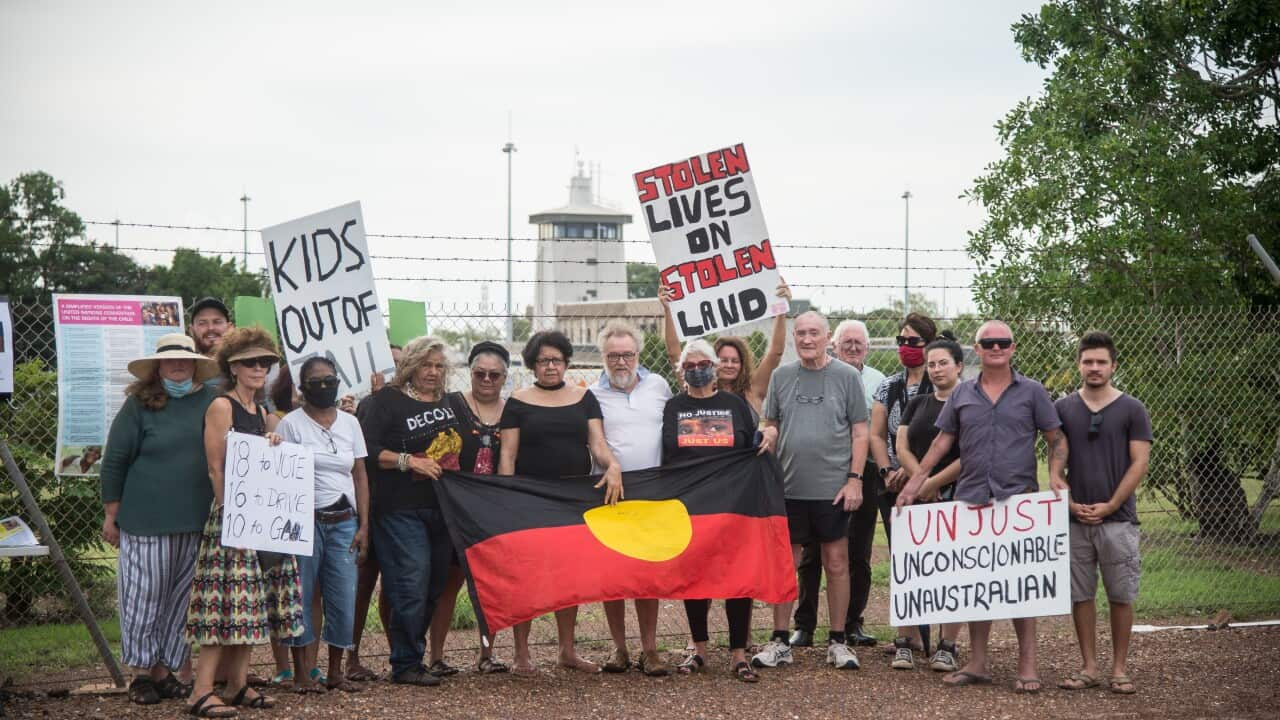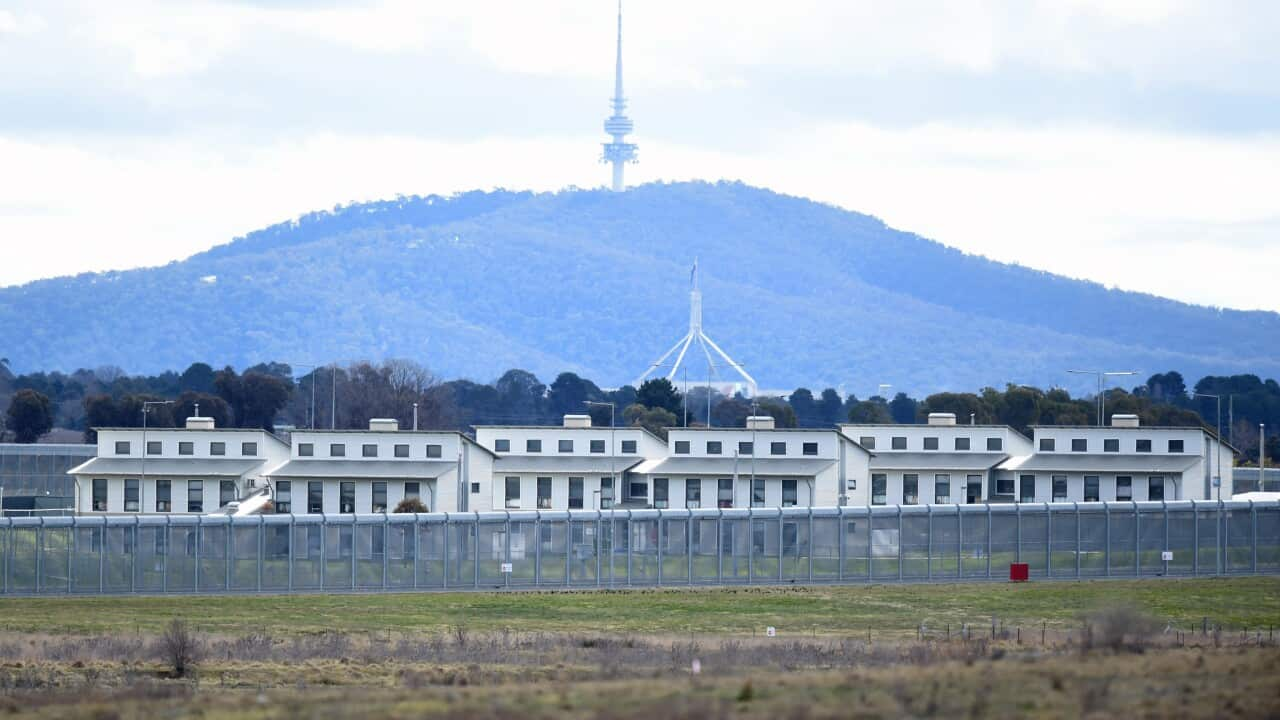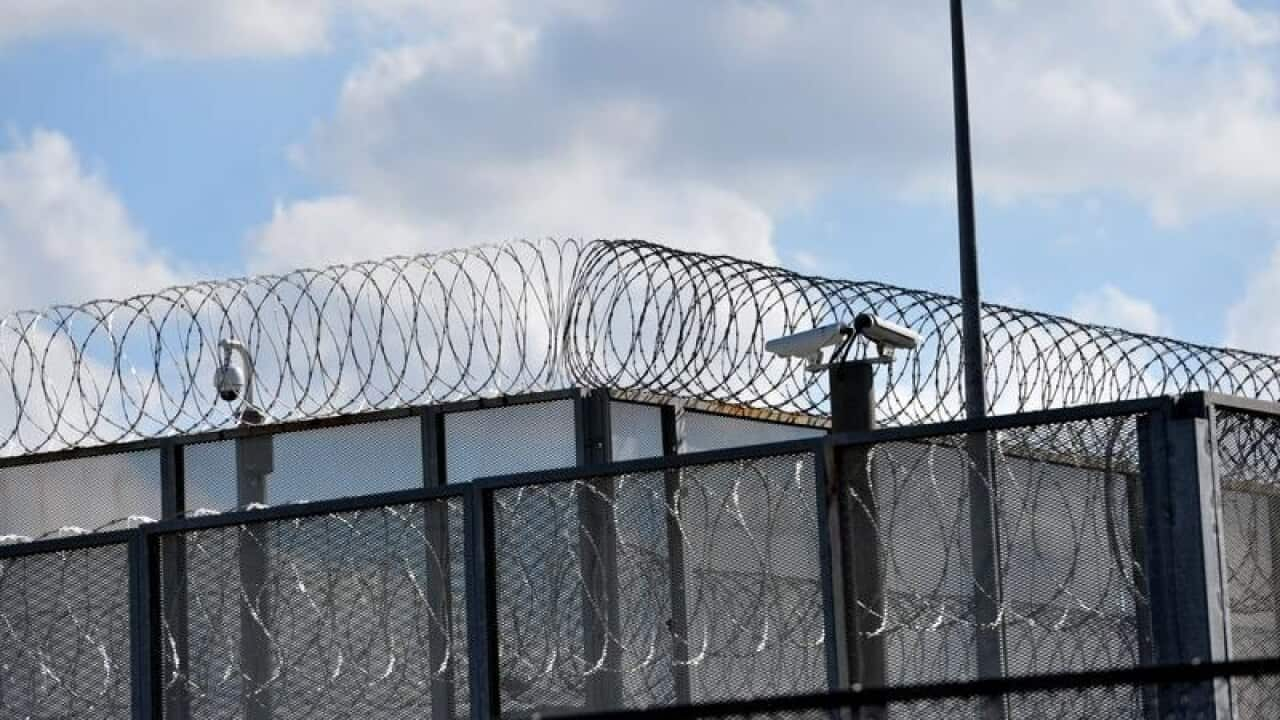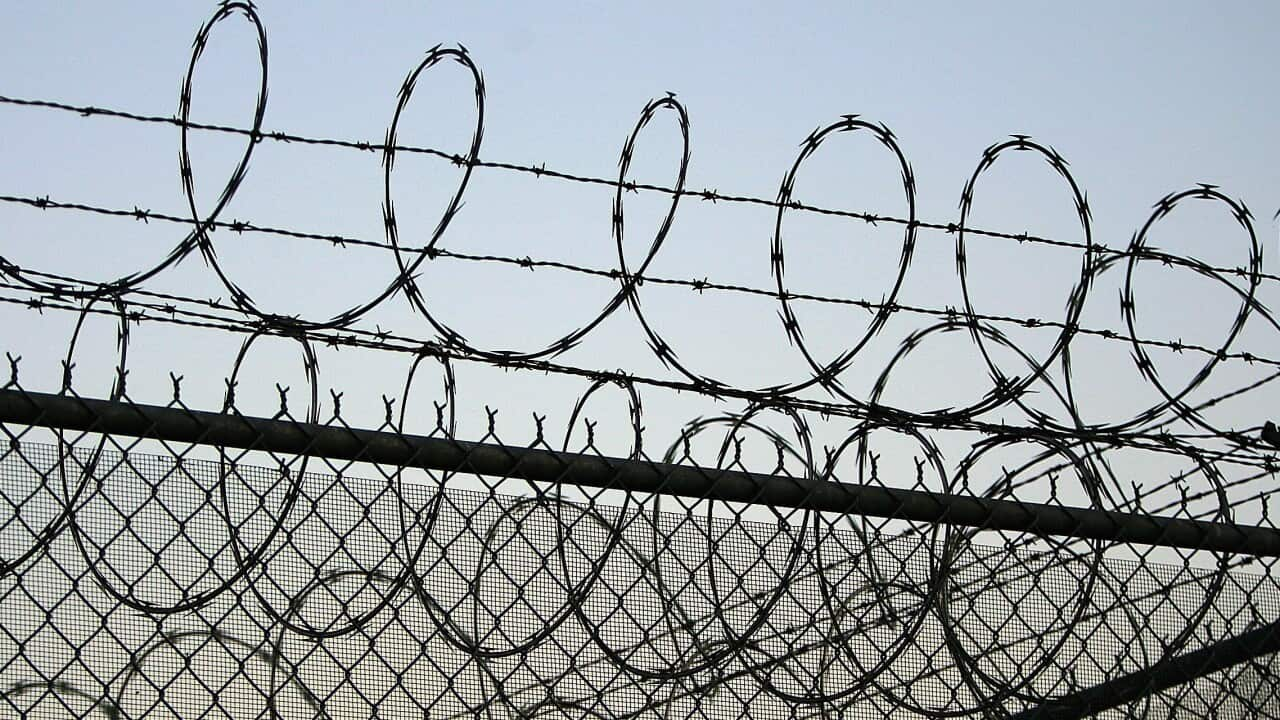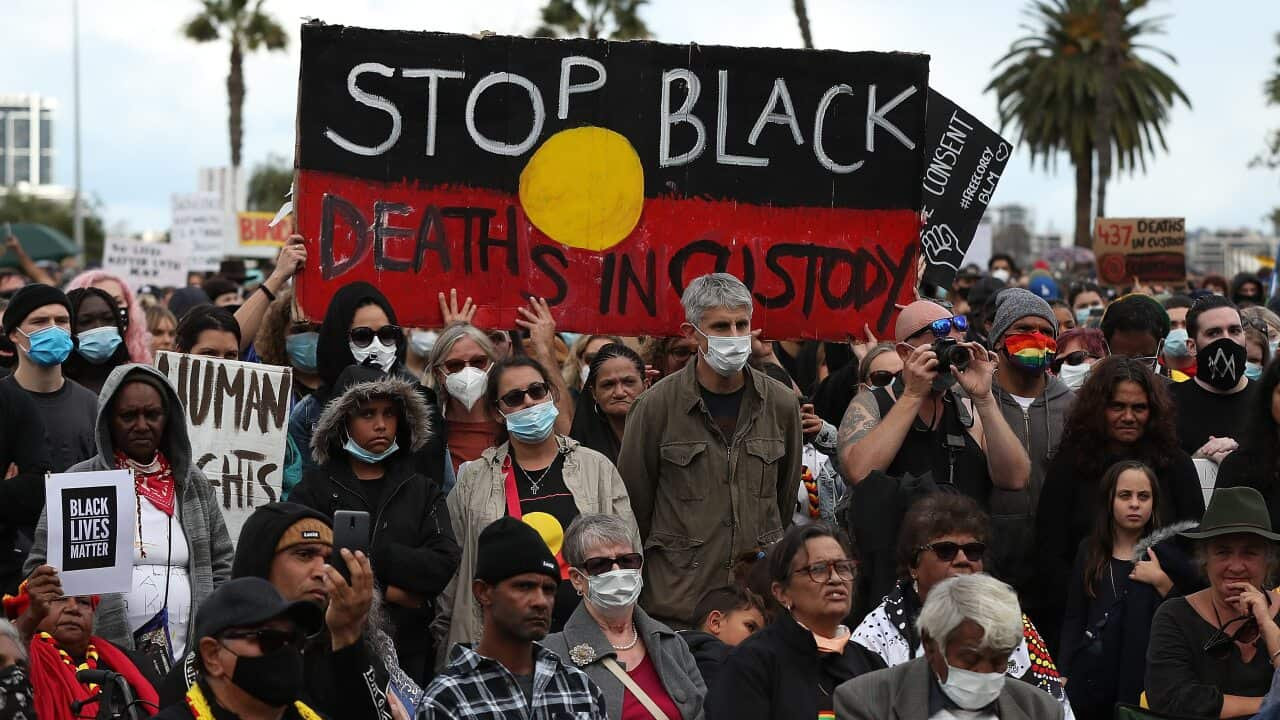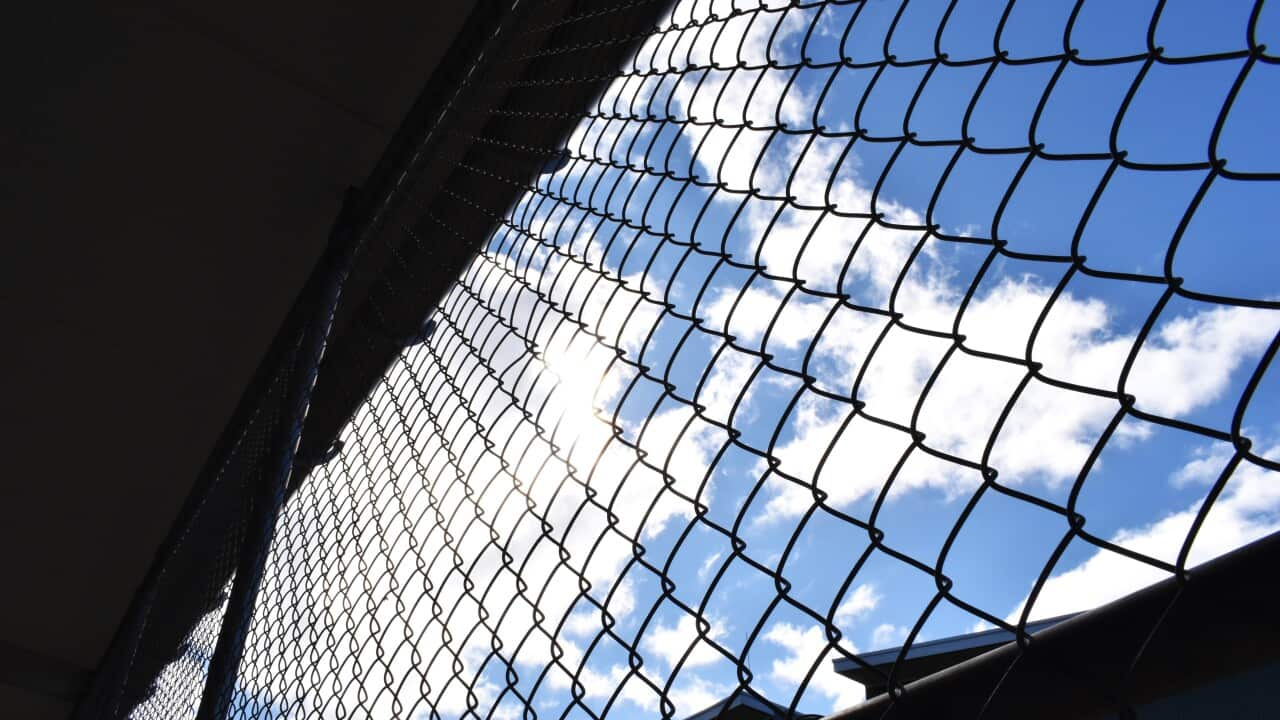

12 min read
Investigation
Julian was found guilty of participating in a riot while in jail and put in solitary. There was no riot
Independent investigations into NSW prisons by the Ombudsman have found serious breaches of legislation and policy, including young Aboriginal inmates being confined to cells alone.
Published 15 October 2024 2:00pm
Updated 15 October 2024 2:45pm
By Rudi Maxwell
Source: NITV
Image: NSW prisons are routinely ignoring the human rights of inmates and recommendations by the Royal Commission into Aboriginal Deaths in Custody. (AAPIMAGE)
Warning: this article discusses themes that may be distressing to some readers.
When Julian, an 18-year-old Aboriginal man, was in the Clarence Correctional Centre, a private prison run by Serco near Grafton, he witnessed another inmate assault a corrections officer in September last year.
Serco charged Julian (not his real name) with participating in or inciting a riot, obstructing a correctional officer and failing to follow a correctional centre routine.
He was found guilty on all three counts.
Julian received penalties of being confined to his cell for seven days, no access to TV for a week and 28 days off buy-ups, where inmates are able to purchase groceries and other approved items.
The inmate who assaulted the guard was referred to police, as a criminal offence.
Following the incident, Neighbourhood 1 was locked down for five days, meaning 175 inmates were confined to their cells; Julian and two other inmates, including one with a history of self-harm, who observed the assault were placed in segregation; 34 inmates (including those three) who observed the assault were charged with correctional centre offences and penalised, and 33 of those inmates were placed on eight-week Behaviour Management Contracts, where prisoners are only allowed out of their cells for either two or four hours.
Julian was one of three inmates charged with and found guilty of inciting a riot.
But there was no riot.
According to a damning report by the NSW Ombudsman into the incident, CCTV footage shows no conduct by inmates that even suggests that they were attempting to create a major disturbance, disobeying directions or inciting inmates to impede responding officers.
By putting Julian in solitary, Serco ignored a longstanding that says placing an Aboriginal inmate in “segregated custody is undesirable in the highest degree”.
The Ombudsman says Serco engaged in conduct that may have been contrary to law, unreasonable, unjust, or oppressive.
“We have formed the view that the decision to segregate these three inmates was contrary to law because it was not reasonably open in each case to conclude that the alleged conduct had occurred or that segregation was necessary,” the report says.
It’s just one example of dozens in jails across NSW that the Ombudsman says demonstrates there is a systemic problem in relation to inmate discipline.
The NSW Corrections system is running roughshod over inmates' human rights with very little oversight, according to two reports released by the Ombudsman in August, one into the incident at the , and another into .
The Ombudsman’s overarching conclusion was systemic failure to follow the legislative requirements and the relevant policies in relation to inmate discipline, leading to unjust outcomes and potentially unlawful decisions.
“We saw maladministration at all steps in the disciplinary process, which was not confined to any particular centres or decision-makers,” the Ombudsman said.
Some of the serious findings include inmates who need mental health support being disciplined; inmates with an intellectual disability not being given access to a support person during disciplinary proceedings; inmates being slapped with illegal penalties; and young Aboriginal inmates being penalised with solitary confinement by being confined to cells alone, despite this being prohibited by policy and contrary to the recommendations of the Royal Commission into Aboriginal Deaths in Custody.
The report also found inmates are regularly charged with incorrect charges and also with 'catch-all' offences - like 'failure to comply with a direction'.
Anaiwan man Blake Cansdale is the national director of , a not-for-profit organisation that advocates to address the over-representation of Indigenous people in jail.
"The NSW Ombudsman’s findings confirm what we have long known – there is a systemic failure within the prison system, and Aboriginal and Torres Strait Islander people are disproportionately harmed by these injustices," he told NITV.
"The conduct of Serco, punishing nearly 200 inmates for the actions of one, is not only unreasonable and oppressive, it reflects the broader issue of over-reliance on punitive measures in place of rehabilitation and community-led solutions.
"This incident also highlights the perils of governments outsourcing essential public services like corrections to the private sector."
More transparency needed
NSW Corrections Minister Anoulack Chanthivong said the Ombudsman’s reports have raised significant issues about the way prisons are managed.
"We’ve taken immediate steps to manage the risk of invalid disciplinary decisions, including providing staff with additional resources and clearer information about their responsibilities," he said.
Mr Chanthivong said, as part of broader reform already underway in Corrective Services, the government was reviewing the current legislation, staff training and disciplinary processes.
"By establishing Corrective Services NSW as a more transparent and accountable standalone agency we’ve acted to help prevent long-term issues like this falling through the cracks," he said.
The two ombudsman's reports follow a scathing assessment by a Special Commission of Inquiry earlier this year that detailed significant failures by Corrections NSW when employing former police officer Wayne Astill at Dillwynia women's jail.
That related how Astill grossly abused his power, raping inmates including a pregnant Aboriginal woman who was on remand.
NSW Greens MLC Sue Higginson, a lawyer, said the Ombudsman's reports reveal that Corrective Services operate as a "renegade arm" of NSW.
“Once a person walks into the custody of Corrective Services they are forced into a dark and degrading world of pain, punishment and lawlessness and let’s remember many of the people we are talking about are First Nations people," she said.
"What happened at the Clarence Correctional Centre to those inmates who had done nothing wrong is shocking."
The Ombudsman found that inmates were subject to unlawful unreasonable and oppressive conduct by Serco.
"They were subjected to unlawful and cruel extended lock ups and segregated in their cells, they were wrongly accused then subjected to an inquiry that resembled a kangaroo court with no procedural fairness afforded and inmates with cognitive impairment or an intellectual disability were denied access to support and then they were wrongly convicted with correctional facility offences," Ms Higginson said.
The Ombudsman also reported that since 2012 there had been no request for a referral to a visiting magistrate to oversee disciplinary matters.
"When an officer meting out disciplinary measures becomes the police, the prosecutor, the judge and the jury, it’s clear that any semblance of procedural fairness and accountability has gone missing in action," Ms Higginson said.
“It is sickening that, under the guise of disciplinary action, young First Nations people, many of whom have histories of self-harm and mental health issues, are being punished by confinement to cells in isolation, in direct contravention of the recommendations of the Royal Commission into Aboriginal Deaths in Custody.
"This practice must immediately stop.”
READ MORE
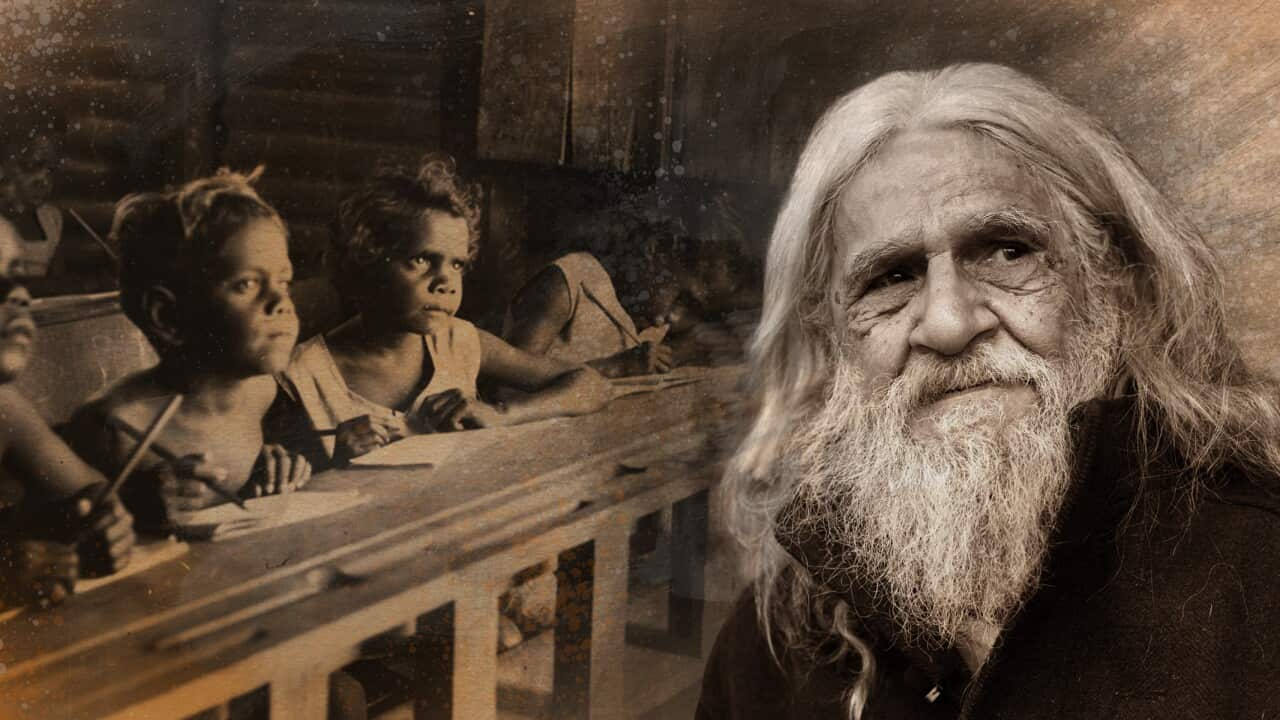
Guilty of being Aboriginal
Lauren Stefanou, principal solicitor at Aboriginal Legal Service NSW/ACT, said the reports provide further proof that NSW prisons are failing communities and that apologies are not enough.
"There must be greater accountability for the treatment of people experiencing incarceration," she said.
"Prisons are inherently harmful and dangerous places – especially for Aboriginal and Torres Strait Islander people, who are still dying in custody more than 30 years on from the Royal Commission …"
Both the ALS and Change the Record are calling on the NSW Government to stop outsourcing jails to private companies.
"Private corporations have profited from the suffering of Aboriginal people for too long," Ms Stefanou said.
Prisons will never be safe places – but returning them to public ownership is a step in the right direction.
The Ombudsman said disciplinary findings can have long term impacts on inmates through placement, classification and parole and recommended that decisions about an inmate's management should treat with caution any account of disciplinary action made since 2018.
"The findings of this investigation cast a cloud of doubt over disciplinary decisions made in recent years," the report says.
Mr Cansdale said the gross over-representation of First Nations peoples in custody is unequivocal evidence of successive governments failing Indigenous people across the nation.
"Prisons are not the answer, and this case is yet another example of how punishment is given precedence over rehabilitation and justice, even more so in the context of privately operated correctional facilities," he said.
"Governments need to stop outsourcing corrective services to private companies and start reinvesting in our communities."
George Newhouse from the National Justice Project said they are investigating a possible class action for the inmates who were wrongfully detained after the incident at Clarence.
"The National Justice Project receives reports of brutality and abuse by guards in prisons all the time, but it is extremely rare for this conduct to be exposed and, more importantly, for guards and prisons to be held accountable for their cruel and inhumane conduct," he said.
"The actions of Serco in this case have been exposed as nothing short of appalling ...
"The NSW Ombudsman’s report reveals a system where prisoners are treated with contempt, subjected to arbitrary punishments, and denied access to justice ...
"The damning report provides a window into the horrors of our prisons, and in particular private prisons, and it gives the National Justice Project a rare opportunity to take action to benefit not just the prisoners affected but more importantly to drive systemic change."
Mr Newhouse said any of the 175 prisoners who were affected by Serco’s punishments on September 21, 2023, at Clarence Correctional Centre can contact the NJP to join the class action.
Law Professor Thalia Anthony from the University of Technology, Sydney, told NITV that 'tough-on-crime' political decisions have real-life consequences.
"Rather than looking at the humanity of people, we put them in prisons, where we can almost rationalise the treatment of those people in inhumane ways," she said.
Look at the moral panic in the community, they are effectively being dehumanised, so when they go to prison, there's no sense that we need to support them or rehabilitate them.
"The focus is on containment, punishment and condemnation."
Professor Anthony said there are trauma and mental health issues that are exacerbated when people are excluded from contact with others - like being confined to a cell, as Julian was.
"This came out very clearly when health experts gave evidence at the Don Dale Royal Commission [into youth detention in the NT] and they pointed to the fact that while the brain's still developing, to the age of 25 it can have long term as well as immediate effects," she said.
Professor Anthony said she supports the NJP's class action - but said it was up to the NSW Government to ensure the Corrections system didn't continue to routinely ignore inmates' human rights.
"The government shelves these reports time and time again, so we know they've not got any real capacity to protect the rights of people where there is a breach," she said.
"And I think that shows why there needs to be a proper Inspectorate system that not only has a reporting ability, but actually can have some disciplinary or other civil measures to to stop what's regarded as breach of criminal law.
"There should be ways in which there are consequences for this, but we know it happens routinely, and I think in these private prisons it is more likely to happen without accountability."
Mr Cansdale, Ms Higginson, Ms Stefanou and Professor Anthony all called on the NSW Government to focus on justice reinvestment, rather than prisons.
"If you put people in those conditions, when they come out, they will be less likely to reintegrate, less likely to be safe in community, more likely to be disruptive because they have been in conditions that have not allowed them to build their confidence and their skills and their ability to be compassionate, because they haven't been treated compassionately," Professor Anthony said.
NITV sent Serco a series of questions about their response to the incident at the Clarence Correctional Centre, including whether they’d implemented the recommendations of the Ombudsman, including that they apologise to every inmate who was locked down in Neighbourhood 1 and expunge their records.
A spokesperson for the Clarence Correctional Centre said they acknowledged the Ombudsman's findings, had implemented ‘several key recommendations and that 128 staff members had received refresher training.
“Serco regrets that on this occasion it has been found our actions were not up to standard and we are committed to working with the Ombudsman and CSNSW to address this,” the spokesperson said.
Following the Ombudsman's investigation, Serco did agree to expunge Julian's disciplinary record and that of one other inmate, who was also found guilty of inciting a 'riot'.

